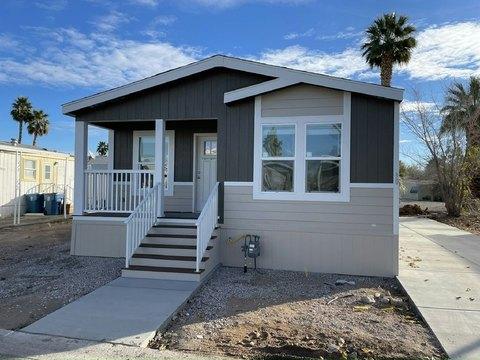Introduction: Key Metrics in Las Vegas Home Sales
Las Vegas, a city renowned for its dazzling lights and vibrant entertainment scene, is also a dynamic landscape for real estate. While the vibrant Strip may steal the spotlight, the heartbeat of the local economy pulses through its housing market, where trends evolve as swiftly as the cards dealt at a blackjack table. Navigating this ever-shifting terrain requires a keen understanding of the key metrics that shape home sales in Sin City. From median prices and inventory levels to sales velocity and buyer demographics, these indicators provide a comprehensive snapshot of the market’s health and direction. In this article, we will explore the pivotal metrics that not only inform potential buyers and sellers but also reflect the broader economic currents influencing this iconic locale. Join us as we delve into the numbers that tell the story of Las Vegas home sales, uncovering insights that are as compelling as a high-stakes poker game.
Understanding the Pulse of the Market Trends in Las Vegas Home Sales
To truly grasp the dynamics of the Las Vegas housing market, it’s essential to delve into key metrics that reveal underlying trends. One of the foremost indicators is the median home price, which reflects the market’s current state and buyer demand. Alongside this, the average days on market (DOM) provides insight into how quickly homes are being sold, which can signify competitiveness. Other critical factors include the number of active listings, which shows inventory levels and can influence pricing, and the sale-to-list price ratio, indicating how much homes are selling for compared to their original asking price.
A deeper analysis can be presented in a concise table format, showcasing essential data from the recent sales trends:
| Metric | Current Value | Year-Over-Year Change |
|---|---|---|
| Median Home Price | $450,000 | +5% |
| Average Days on Market | 30 days | -10% |
| Active Listings | 1,200 | -15% |
| Sale-to-List Price Ratio | 98% | +2% |
These metrics paint a vivid picture of the market landscape. A rising median home price coupled with a decreasing average DOM suggests increasing buyer competition, while a decline in active listings points to a tightening inventory—factors that can greatly influence purchase decisions. Ultimately, understanding these variables helps buyers and sellers make informed choices in a vibrant and ever-evolving market.

Decoding the Key Indicators: What Numbers Matter in Real Estate Decisions
When navigating the dynamic world of real estate, particularly in a vibrant market like Las Vegas, it’s crucial to keep an eye on key metrics that could influence your buying or selling decisions. Among the most telling indicators are median home prices, which provide insight into the living affordability and market trends. Another significant factor is the days on market, which reveals how quickly homes are being sold in your desired area. A shorter timeframe often indicates a competitive market, signaling a potential need for swift decision-making. Additional indicators worth monitoring include:
- Inventory Levels – Understanding the number of available homes can help gauge market saturation.
- Sale-to-List Price Ratio – This metric reflects how much buyers are willing to pay compared to the original listing price.
- Price Per Square Foot – A direct way to compare property values across different neighborhoods.
Analyzing these metrics can provide valuable insights into neighborhood performance and overall market health. For instance, consider looking at the following table that illustrates typical metrics from various neighborhoods in Las Vegas:
| Neighborhood | Median Home Price | Days on Market | Sale-to-List Ratio |
|---|---|---|---|
| Summerlin | $500,000 | 30 | 98% |
| Henderson | $450,000 | 45 | 95% |
| North Las Vegas | $350,000 | 50 | 92% |
By leveraging these metrics, prospective buyers and sellers can make informed decisions, paving the way for successful transactions in the vibrant Las Vegas real estate landscape.

Analyzing Buyer Behavior: Insights into Preferences and Demographics
Understanding buyer behavior in the Las Vegas real estate market unveils significant patterns related to personal preferences and demographic segments. Recent trends indicate that millennials are increasingly entering the housing market, driven by factors such as remote work flexibility and the desire for homes that accommodate family growth. They tend to prefer properties that offer modern amenities and proximity to entertainment and recreational facilities. In contrast, baby boomers are looking for downsizing options, often gravitating towards single-story homes and communities that provide low-maintenance living. As these demographics evolve, it is vital to note how their unique needs shape the market dynamics.
Moreover, the insights derived from analyzing buyer preferences can be represented in compelling data. For instance, consider the following table that summarizes key housing features preferred by different age groups:
| Age Group | Preferred Features |
|---|---|
| Millennials |
|
| Gen X |
|
| Baby Boomers |
|
These trends highlight the intricate interplay between buyer demographics and their housing choices. As the market continues to evolve, tracking these preferences provides into the future landscape of Las Vegas home sales, ensuring that real estate professionals and developers stay ahead of the curve in meeting buyer demands.

Strategic Recommendations for Sellers: Maximizing Value in a Competitive Landscape
In the rapidly evolving real estate market of Las Vegas, sellers must adapt their strategies to not just survive but thrive amidst fierce competition. Focusing on the most pertinent metrics can enhance the sale process significantly. First and foremost, understanding market trends is crucial; this includes staying informed about average days on market and sale-to-list price ratios. Sellers should consider leveraging tools that offer data visualizations and predictive analytics for better decision-making. By establishing a solid grasp of these metrics, sellers can strategically price their homes to invoke competitive interest while maximizing their return on investment.
Another vital aspect is enhancing the property’s appeal through thoughtful staging and modern updates. Effective marketing, including professional photography and virtual tours, can make a substantial difference in attracting potential buyers. Moreover, sellers should emphasize their home’s unique value propositions by highlighting features like energy efficiency, nearby amenities, and community benefits. Implementing a targeted marketing plan that includes social media outreach, open houses, and collaboration with local real estate agents will position the property favorably in the market landscape. Additionally, maintaining optimal communication with buyers—through quick responses and transparency—will instill trust and ultimately facilitate smoother transactions.
Q&A
Q&A: Key Metrics in Las Vegas Home Sales
Q: What are the key metrics that define the Las Vegas home sales market?
A: The Las Vegas home sales market is defined by several key metrics, including median home prices, sales volume, days on market, inventory levels, and price per square foot. These indicators help paint a comprehensive picture of market health and trends.
Q: How does median home price fluctuate in Las Vegas?
A: The median home price in Las Vegas fluctuates due to various factors such as economic conditions, demand and supply dynamics, and seasonal trends. Generally, prices can rise during peak seasons, like summer, when buyer activity increases.
Q: What is the significance of sales volume in understanding the market?
A: Sales volume indicates how many homes are sold in a given time period. A higher sales volume often suggests a robust market with strong buyer demand, while a lower volume can indicate market slowdowns or declining buyer interest.
Q: Why is the ‘days on market’ metric important for sellers and buyers?
A: The ‘days on market’ metric reflects how long a property stays available before being sold. For sellers, a shorter duration can signal a competitive and desirable listing, while for buyers, it can indicate urgency and the need to make quick decisions in a hot market.
Q: How do inventory levels impact home sales in Las Vegas?
A: Inventory levels directly affect home availability. A low inventory typically drives prices up due to competition among buyers, while a high inventory may lead to price reductions as sellers compete to attract buyers. Balancing this supply and demand is crucial for a healthy market.
Q: What is the average price per square foot, and why should buyers pay attention to it?
A: The average price per square foot gives buyers a clearer understanding of home value relative to size, allowing for fair comparisons between different properties. This metric can help buyers assess whether they’re getting a good deal based on the prevailing market conditions.
Q: How can understanding these metrics help potential home buyers or sellers?
A: By understanding these metrics, potential buyers and sellers can make informed decisions. Buyers can evaluate whether it’s a good time to purchase, while sellers can set realistic price expectations and marketing strategies based on current market conditions.
Q: Are there seasonal trends in Las Vegas home sales that buyers should be aware of?
A: Yes, Las Vegas experiences seasonal trends; typically, spring and summer see a spike in sales as families prefer moving during school breaks. Conversely, sales may slow down in the fall and winter months, which can impact pricing and inventory levels.
Q: How do economic factors influence the Las Vegas housing market?
A: Economic factors such as job growth, interest rates, and migration patterns profoundly affect the Las Vegas housing market. A growing economy can lead to increased demand for housing, while rising interest rates may deter potential buyers, influencing overall sales activity.
Q: What resources are available for those interested in tracking these metrics?
A: Several resources such as the Greater Las Vegas Association of Realtors (GLVAR), local real estate websites, and economic analysis reports provide valuable insights into key metrics. Additionally, connecting with a local real estate agent can offer personalized advice and data.
Conclusion
Understanding key metrics in Las Vegas home sales can empower both buyers and sellers in navigating the dynamic real estate landscape. By staying informed, individuals can make strategic decisions that align with their goals amidst the ever-evolving market trends.
To Conclude
navigating the vibrant and ever-evolving landscape of Las Vegas home sales requires a keen understanding of the key metrics that drive this dynamic market. From median sale prices and inventory levels to days on market and buyer demographics, each data point tells a story about the unique factors shaping the housing scene in this sprawling desert oasis. As potential buyers, sellers, and investors chart their course in this real estate haven, these metrics serve as essential tools for making informed decisions. Whether you’re drawn by the allure of the Strip, the tranquil suburbs, or the promise of investment opportunities, staying attuned to these indicators will equip you to thrive in one of the most exciting housing markets in the country. So, as you embark on your real estate journey in Las Vegas, remember: understanding the numbers can lead you to your perfect home in this captivating city.

